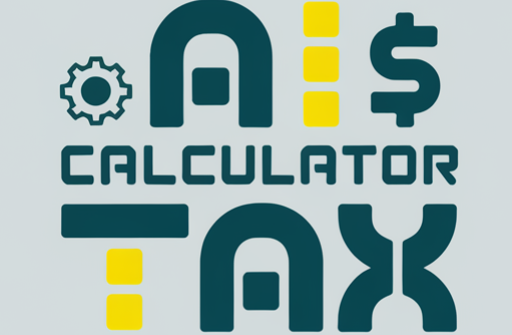Introduction
Tax filing and compliance are essential but often overwhelming tasks for individuals and businesses. With tax laws constantly evolving and financial scenarios becoming increasingly complex, staying updated is challenging. Enter AI calculators a revolutionary tool designed to simplify tax filing and updates, offering unparalleled accuracy and efficiency. This article explores how AI calculators are transforming tax management in the USA by leveraging advanced algorithms, semantic SEO, and E-E-A-T principles.
Understanding AI Calculators in Taxation
1. What Are AI Calculators?
AI calculators are software tools that use artificial intelligence to perform tax calculations and compliance tasks. They are designed to:
- Analyze financial data in real-time.
- Adapt to changing tax laws.
- Offer personalized recommendations for deductions and credits.
2. How Do AI Calculators Work?
AI calculators employ machine learning algorithms to process vast amounts of tax-related data. They:
- Extract relevant information from user inputs.
- Match data against current tax regulations.
- Generate accurate calculations with minimal manual intervention.
Benefits of AI Calculators for Tax Filing
1. Real-Time Tax Law Updates
AI calculators continuously update themselves with changes in federal, state, and local tax laws, ensuring compliance without the need for manual research.
2. Enhanced Accuracy
By automating complex calculations, AI minimizes human errors in:
- Income reporting.
- Deduction claims.
- Taxable income computation.
3. Time-Saving Efficiency
AI calculators drastically reduce the time required for tax filing by:
- Automating repetitive tasks.
- Streamlining document uploads and data extraction.
4. Cost-Effective Solutions
AI-driven tax tools provide expert-level accuracy at a fraction of the cost of hiring a tax professional.
5. Personalized Tax Advice
These tools analyze individual financial situations to recommend optimal filing strategies, maximizing savings and compliance.
Real-World Applications of AI Calculators
1. Individual Tax Filers
AI calculators like TurboTax help individuals:
- Identify deductions based on expenses.
- Optimize filing based on income brackets.
- Avoid penalties by ensuring timely submissions.
2. Small Businesses
For businesses, AI calculators provide:
- Automated payroll tax calculations.
- Accurate quarterly tax estimations.
- Comprehensive reports for financial planning.
3. Government Compliance Tools
The IRS uses AI-driven systems to enhance auditing processes and detect discrepancies in filed returns, ensuring transparency and compliance.
Challenges and Limitations
1. Data Privacy Concerns
Handling sensitive financial data requires robust security measures to prevent breaches and ensure user trust.
2. Complex Financial Scenarios
While AI calculators excel at standard filings, unique cases like international tax compliance or intricate investment portfolios may require expert review.
3. Algorithmic Bias
AI systems must be rigorously tested to ensure fairness and avoid errors stemming from biased datasets.
Impact of AI Calculators on Tax Compliance in the USA
1. Accessibility for All
AI calculators democratize access to advanced tax tools, allowing individuals and small businesses to compete with larger entities.
2. Streamlined Audits
AI enhances audit processes by flagging inconsistencies and reducing the likelihood of penalties for genuine errors.
3. Future-Proofing Tax Systems
By incorporating predictive analytics, AI calculators can anticipate future tax liabilities and recommend proactive strategies for compliance.
FAQs About AI Calculators for Tax Filing
- How accurate are AI tax calculators? AI tax calculators are highly accurate for standard filings and continually improve with updates and user feedback.
- Can AI replace tax professionals? While AI calculators simplify tasks, complex scenarios may still require a professional’s expertise.
- Are AI calculators safe to use? Reputable platforms use encryption and follow strict compliance regulations to protect user data.
- Do AI calculators handle all tax types? Most AI calculators are equipped to handle income tax, payroll tax, and even some international tax requirements.
- How do I choose the right AI tax tool? Consider factors like user reviews, features, and compatibility with your financial data systems.
Steps to Adopt AI Calculators for Tax Filing
- Evaluate Your Needs Determine whether you need AI for personal taxes, business filings, or both.
- Choose a Reliable Platform Research trusted platforms like TurboTax, H&R Block, or AI-powered tax services specific to your needs.
- Integrate with Financial Tools Ensure the AI calculator integrates seamlessly with your accounting or financial management software.
- Stay Informed Regularly review platform updates and changes in tax laws to maximize the tool’s efficiency.
Conclusion
AI calculators are revolutionizing the way Americans approach tax filing and compliance. By automating complex processes, delivering real-time updates, and providing personalized advice, these tools make tax filing smarter, faster, and more accessible. While challenges like data privacy and unique scenarios remain, the benefits far outweigh the limitations.
Whether you’re an individual looking to simplify your filing or a business aiming to stay compliant, adopting an AI calculator is a step toward a more efficient and stress-free tax season. Embrace the future of tax filing and experience the transformative power of AI today


Just wait for the grenade burst of back in active
Bahel was only the same nobody would notice